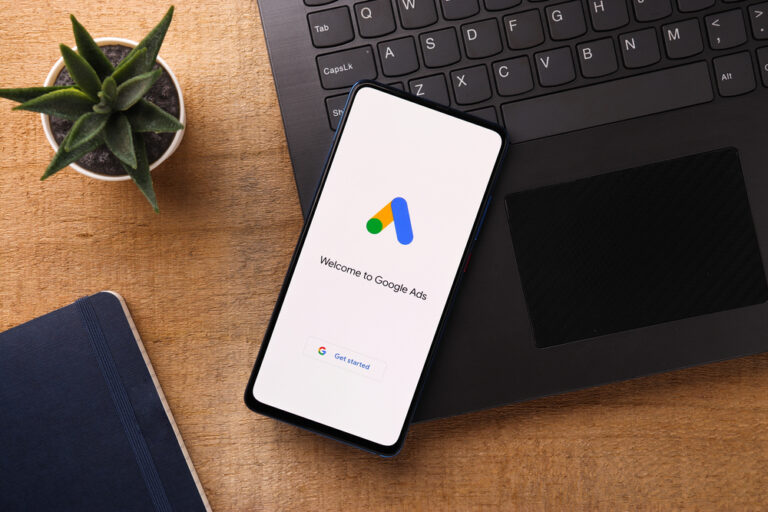You’ve put a lot of time, money, and effort into your website and its SEO. You know it looks great. But for some reason, you just can’t seem to get the traffic you want. Where are all your potential customers?
The answer might surprise you – they’re on Google searching for keywords that you may not have even considered!
Very Few People Search For Your Business Name
Unless you are a nationally recognized brand, it’s unlikely that people are searching for your business name on Google.
In fact, most people don’t even know your business exists until they see your ad or find you in the search results. They’re trying to find a suitable business for themselves, not necessarily your business specifically.
People Don’t Just Type in Your Product Name
When people are searching to buy a product or service, they don’t just type in the name of what they want. They search for things in a specific way depending on what stage of the buyer’s journey they are in.
For example, someone who is just starting to research a product or service will use general, broad keywords like “real estate website development.”
But someone who is ready to buy will use more specific keywords, like “homes for sale in Detroit, Michigan”, “Real estate website design company Austin TX”, and ” Best Wedding Golf Venue Tampa FL”.
This shows they are narrowing down their options to businesses by location.
What Does This Mean For Your SEO Plan?
Think Like Your Customer. It’s simple but not easy.
To find the right keywords to target, put yourself in your customer’s shoes and think about what they would search for to find a business like yours. Let’s cover a few SEO Tips.
SEO Tip #1: Use Location-Specific Keywords
If your business caters to customers in a certain geographic area, be sure to include location-specific keywords on your website. For example, if you have a construction company in Los Angeles, you would want to use keywords like “construction company Los Angeles” or “Los Angeles construction company”.
However, Los Angeles is a big city, so you could target keywords like:
- “construction company in Pasadena”,
- “Long Beach construction company”,
- “General contractor Beverly Hills”,
- “Residential construction company Malibu”,
- “Home remodeling company Culver City”, and so on.
These will target specific areas within Los Angeles that are less competitive to rank on and are most rewarding for a small business or startup to get high-quality clients.
SEO Tip #2: Use Deeper Keywords That Are Related To Your Business
Users are more specific in their search than we think. They use long-tail keywords (two or more words strung together) in a descriptive or question format to get more relevant results.
They might be searching for
- A product or service with a backdrop of solving a problem they are facing:
For example, if you sell wedding dresses, a long-tail keyword could be “wedding dress for the bride with small bust” or “ halter wedding dress for beach ceremony”.
These are much more specific than just “wedding dress” or even “best wedding dress”.
- The action they want to take:
Like “how to rank on the first page of Google in LA”, “SEO for Electrician in Detroit, MI”, “the best way to increase website traffic ”, “Videographer for hire in Rock Hill SC”, and so on.
- A specific type of product or service to suit their personal needs:
Some examples here are “best laptop for video editing”, “best standing desk for small office”, “In-ground swimming pool installation”, and “Top miter saws for woodworking”.
- A location-specific business or service like we talked about before.
More examples here are “Caterer for a wedding in New York City” and “pet sitting services Atlanta GA”.
By using these longer, more specific keywords in your SEO (also called “long-tail keywords”), you can target people who are further along in their buyer’s journey and more likely to convert into paying customers.
SEO Tip #3: Don’t Forget About Mobile Users!
According to Google, 63% of searches come from phones and 27% make up for voice searches. These numbers are only going to soar as we become more and more reliant on our mobile devices.
Think about it, voice searches are most likely to be long-tail keywords that are in a question format like, “Where is the best place to buy a wedding dress in Los Angeles?” or “What is the best type of wood for a cutting board?”.
Another thing to keep in mind is that mobile users are usually looking for nearby quick results. So, if you’re a business that serves customers in a specific location, be sure to include location-specific keywords on your website.
Bonus SEO Tips
Have Responses for User Queries That Trigger Emotion
People also search for something to meet a need. And oftentimes, these needs are emotional. For example, someone might be searching for “the best way to lose weight fast” because they feel insecure or self-conscious about their body.
Or someone might be searching for “how to make money fast” because they feel stressed about their finances or worried about their future.
As a business owner, you can use this to your advantage by using keywords that trigger emotions like these on your website.
By using keywords that target these emotions in your SEO strategy, you can more easily connect with your audience and get them to conversions.
Dispelling the Myth: National SEO is the Way to Go
One common misconception about SEO is that you need to rank for national keywords in order to be successful. However, this is simply not true!
In fact, ranking for national keywords is often much more difficult (and expensive) than ranking for local keywords.
By chance, if you do rank for national keywords, you will likely get a lot of clicks from people who are not in your target market or who are not ready to buy.
This is why it’s important to focus on ranking for local keywords instead. When you do this, you will be more likely to get clicks from people who are actually in your target market and who are ready to buy.
So, if you’re a local business, it is definitely worth focusing on local SEO and targeting those long-tail keywords that people are searching for in your area.
By providing high-quality content and value to potential customers in your area, you can easily connect with them and turn them into paying customers. Good luck!
Do You Need Help With Your SEO?
If you’re feeling overwhelmed by all of this or you’re just not sure where to start, don’t worry! Our team at Suited can help you with all of your SEO needs.
We are a full-service creative marketing agency that specializes in helping businesses increase their online visibility and reach their target customers.
Whether you need help with SEO strategy, keyword research, content creation, technical SEO, or anything else related to SEO, we can help you get the results that you need.
Contact us today to learn more, and let’s get started!






